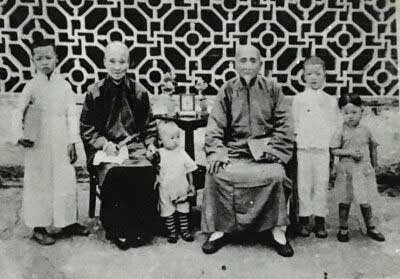
This project constitutes a historical research on the everyday life of local elites in modern Wenzhou (1830–1949). Using a newly available collection of local diaries from Wenzhou, together with abundant local sources collected in the past years, this project aims to explore the life stories of local elites who served in multiple roles in local society and witnessed numerous local incidents throughout the late nineteenth and early twentieth centuries. Contrary to the studies that tend to focus on high-level politicians and nationally-renowned figures, this study focuses on both “history from below” and “history from the middle,” demonstrating the complex dynamics between local elites, social powers, political regimes, regional authorities, and the actors from varied strata. It also extends the exploration to the interplay between individual and collective experiences, the diversity of individual experiences and viewpoints, and the multiple representations of local history throughout China’s giant social and political transformations.
To broaden the understanding of the everyday life of local elites in modern Wenzhou, this project adopts both digital and non-digital methods and examines macro and micro aspects of local elites’ life. First, this study will focus on the life stories of several local elites by exploring their diaries, including Zhao Jun 趙鈞 (1786–1866), Zhang Gang 張棡 (1860–1942), and Liu Shaokuan 劉紹寬 (1867–1942). Using the rich accounts in these diaries, this study intends to explore the insights into these local elites’ personal views and experiences, as well as their contemporaries’ living worlds. Second, this project examines both local and nation-wide sources including diaries, personal writings, genealogies, gazetteers, newspapers, and government archives in order to reconstruct the ways local actors organized their lives and communal affairs. This study aims to connect individual and collective experiences, exploring both inner and outside worlds of local elites. Third, this project employs several digital tools and methods, including some annotation or mapping software such as Inception and Tableau Public, to explore massive digital corpora, especially newspapers, gazetteers, and local archives. This study aims to use these three different approaches to explore how local elites appeared in different arenas and shaped their daily life in modern Wenzhou. Fourth, this project will build a website called “Virtual Wenzhou,” a research and resource platform on the history of Wenzhou from the mid-nineteenth century to the present. The website contains various types of documents, including photographs, maps, soundtrack, bibliographies, essays, and other primary sources. All in all, drawing on a wide array of sources and methods, this project aims to join the studies of Chinese elites by examining the everyday life of local elites in modern Wenzhou.